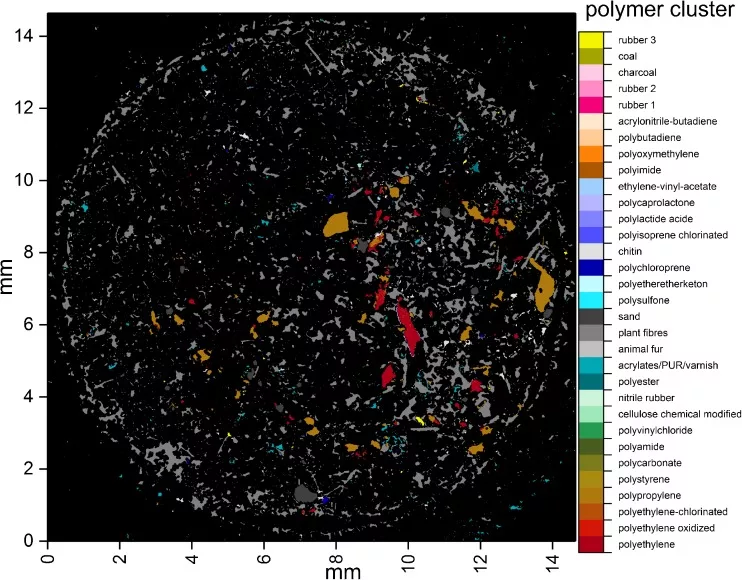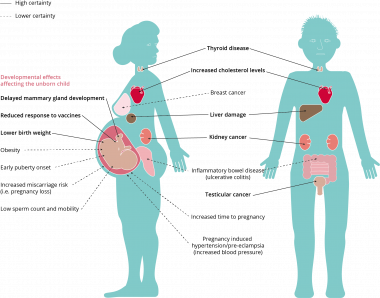Last Updated on December 20, 2023 by Ecologica Life
We have a big problem on our hands; microplastics. They are everywhere, clogging up our oceans, our plants, our tea bags and maybe even our brains.
Although some companies are trying to tackle this problem in small ways such as microplastic filters for our taps and bags to catch microplastics in washing machines, there is currently no collective action being taken to tackle this most drastic of problems.
In this article we will explain to you what microplastics are and why they could pose a threat to humanity and life on Earth.

We have already written an article about what microplastics are. Briefly, microplastics are small plastic particles less than 5mm in size. Nanoplastics are the smaller cousins of microplastics and are less than 1 micrometre in size (less than 0.001 millimetres!).
The problem with micro- and nanoplastics is that they are in everything. From the ocean, to milk, wine, beer, pork and have been found in human blood samples. Nanoplastics can be absorbed by the roots of plants and what’s worse, nanoplastics can cross the blood-brain barrier (BBB) and have been shown to induce neurotoxic effects.
I think this is the most important point that no one is discussing… Nanoplastics can cross the blood-brain barrier and they are neurotoxic……
There are billions of microplastics around you right now, in the air, in the water and food and your clothes. They may be entering your bloodstream via your gut or entering your skin through your pores. Let’s ignore for the moment how this might affect your body’s metabolism, immune system and hormones.
These nanoplastics could get into your brain and do who knows what. The preliminary data suggests that micro- and nanoplastics can induce oxidative stress, which is an increase in particles known as free radicals that can damage the components of a cell. This leads to cellular damage and an increased risk of developing neuronal disorders.
Microplastics have been known from marine ecology for several decades. The effects they are having on human health can’t be immediately life threatening because there would probably be an uproar about them based on their increasing prevalence everywhere in the environment.
The effects of microplastics on our health must be small and could even be noticeable. What if these nanoplastics are very slowly making us dumber? increasing the risk of brain disorders or brain cancer? Admittedly, there is no data to conclude that any of this is true, but there hasn’t been enough research to rule it out either, so a lack of research means we can’t rule it out.
The increase in the prevalence of autoimmune diseases comes to mind, that the causes of which are not well understood , could microplastics be playing a role in these diseases? How might microplastics affect the immunocompromised or the chronically ill? Microplastics have been shown to carry disease causing bacteria and may be a hub for the accumulation of antibiotic-resistant bacteria in sewage treatment plants.
There’s no doubt that the microplastics and nanoplastics found in our blood and brains can’t be good for us. Likewise, this is having negative effects on the environment and wildlife. A literature review on the subject found that microplastics may be causing malnutrition in birds, interfering with nutrient absorption and reproduction, and hindering growth and survival. We don’t yet understand the impact of microplastics but we may see the consequences of in the coming years.
The most frightening thing is that we are always producing more and more plastic. We are throwing away more and more plastic. There are still millions of tonnes of plastic that have not broken down into microplastics. If these microplastics are having even a small impact on our health, the effect will become bigger and more noticeable in the years to come.
This issue needs to be addressed as it is, a global crisis, you could even call it a pandemic. We are all being infected by these microplastics, and the response should be equal or similar to the COVID-19 pandemic. We need research teams around the world investigating this now.
Perhaps the fear presented to you in this article is more dramatic than is necessary. Maybe microplastics don’t affect our health to the extent that they potentially could, then research needs to prove that and then we can focus on other global crises such as climate change and loss of ecosystems. But if there is any merit in what is being stated here then we must come together to solve this problem immediately. Our health, the health of all species and our descendants may depend on it.
We at Ecologica.life always try to focus on the solutions, not just the problems. We admit that this article seems a bit serious.
The solution to the microplastic problem won’t be easy. What we believe is needed is more research and understanding.
Microplastics are a relatively new discovery and we need to find out as much as we can about them. So, the solution here is awareness. Please share this article and spread the word about the global microplastic problem. Let’s get the conversation going and maybe together, we can find a solution.
If you want to reduce microplastics in your daily life, read our article on how to avoid microplastics.








